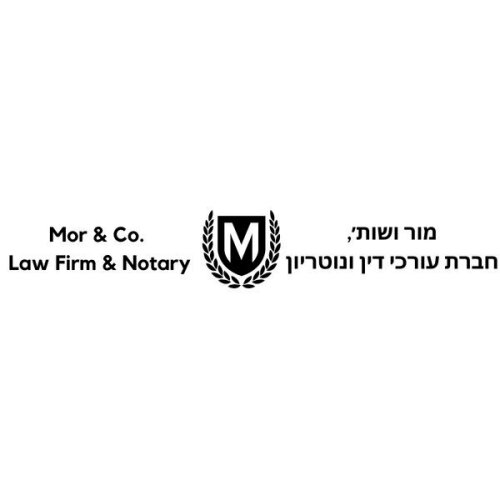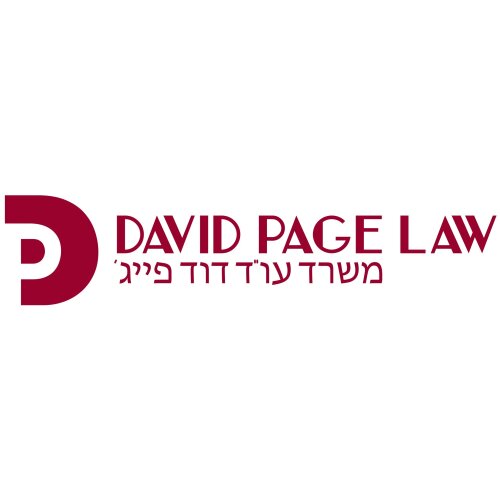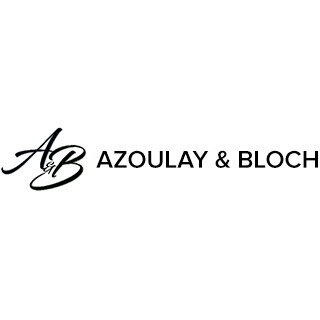Best Water Law Lawyers in Jerusalem
Share your needs with us, get contacted by law firms.
Free. Takes 2 min.
List of the best lawyers in Jerusalem, Israel
About Water Law in Jerusalem, Israel
Water Law in Jerusalem, Israel refers to the complex set of legal frameworks that govern the ownership, distribution, usage, and preservation of water resources within the city and surrounding areas. Given Jerusalem's unique geographical, historical, and political status, water law plays a vital role in everyday life for residents, businesses, religious institutions, and government bodies. The legislation balances the needs for access to water, public health, environmental protection, and fair allocation between different sectors and communities.
Why You May Need a Lawyer
Legal issues relating to water are common in Jerusalem due to the city's limited water resources, dense population, and diverse range of stakeholders. You may need a lawyer specializing in water law if you encounter any of the following situations:
- Disputes over water rights or access between property owners, neighbors, or water authorities
- Concerns about interruptions, quality, or contamination of supply
- Regulatory compliance issues for businesses, real estate projects, or industrial use
- Problems involving illegal water connections or fines from water authorities
- Participation in government or municipal water planning, infrastructure projects, or tender processes
- Advocacy for environmental or ecological protection of water sources
- Involvement in public interest litigation or community disputes related to water allocation or conservation
Local Laws Overview
Water law in Jerusalem is shaped by national and municipal legislation, regulatory authorities, and historical agreements. Key aspects include:
- The Water Law of 1959, Israel's primary water statute, which declares all water resources as public property under state management
- Oversight by the Water Authority (Rashut HaMaim), which manages allocation, pricing, and infrastructure development
- Licensing requirements for water use beyond standard domestic consumption, particularly for agriculture, industry, and public use
- Strict regulations on water quality, safety standards, and monitoring of pollution or contamination events
- Special considerations for cross-jurisdictional and religious sites in Jerusalem, sometimes requiring multiagency coordination
- Municipal ordinances covering issues like connection to the main water grid, maintenance of pipes and meters, and handling of wastewater
- Laws regarding conservation, encouraging the use of recycled or desalinated water, and penalties for waste or illegal extraction
Frequently Asked Questions
What is meant by "public property" in relation to water in Jerusalem?
All water sources in Israel, including those in Jerusalem, are legally defined as public property. This means the state regulates all collecting, distributing, and using of water through appointed authorities, and private ownership of water resources is not permitted.
Who is responsible for providing water services in Jerusalem?
The Gihon Company is the main provider for the Jerusalem area, operating under the guidance of the national Water Authority. They handle distribution, billing, and maintenance for municipal water services.
Can I drill a well or extract groundwater on my property?
Drilling or extracting groundwater requires obtaining a license from the Water Authority. Unauthorized wells or extractions are illegal and subject to fines or criminal penalties.
What should I do if I suspect water contamination?
Report any signs of water contamination to the Gihon Company or the municipal health authorities immediately. They will investigate, provide guidance, and, if needed, take corrective legal or technical measures.
How are disputes over water bills or meter readings resolved?
First, contact your water provider to review the bill. If the issue is unresolved, you may file a complaint with the relevant municipal authority or consumer protection body. Legal action can be considered if the dispute persists.
Are businesses subject to different water regulations than households?
Yes. Commercial and industrial entities often require special permits, may face higher tariffs, and have additional responsibilities for wastewater treatment and reporting.
What penalties exist for illegal water use or tampering with infrastructure?
Penalties may include hefty fines, the cost of consumed water, disconnection from the water grid, and even criminal prosecution, depending on the severity of the offense.
Can water be disconnected for nonpayment in Jerusalem?
Water authorities can disconnect service for nonpayment, but there are protections for medically or socially vulnerable populations. An attorney can help if you believe a disconnection was wrongful.
Are there special water rules for religious or historical sites?
Yes. Certain religious and historical sites have customized agreements regarding water provision, often involving cooperation between municipal, governmental, and non-governmental bodies.
How can I participate in or challenge public water planning decisions?
Members of the public can submit comments during periods of public consultation or via legal appeals if impacted by water planning or infrastructure decisions. Legal representation is recommended in such proceedings.
Additional Resources
If you need more information or support regarding water law issues in Jerusalem, consider these resources:
- Water Authority (Rashut HaMaim): National body responsible for all water management and regulation
- Gihon Water Company: Main municipal water provider in Jerusalem
- Jerusalem Municipality (Iriyat Yerushalayim): Handles local complaints, permits, and ordinances
- Israel Ministry of Environmental Protection: Regulates issues related to water quality and environmental conservation
- Consumer Protection Bureau: Addresses billing disputes and consumer rights
- Local legal aid organizations: Offer support for individuals who cannot afford private representation
Next Steps
If you are facing a legal problem involving Water Law in Jerusalem, Israel, consider the following steps:
- Document all relevant facts, correspondence, and evidence related to your issue
- Contact your water provider or the appropriate public authority to attempt to resolve the matter
- If the issue persists, consult an attorney specializing in Water Law or administrative law for advice on your rights and options
- Ask about potential mediation or alternative dispute resolution if appropriate
- If you cannot afford legal representation, seek assistance from legal aid organizations or the public defender's office
Navigating Water Law in Jerusalem can be complex, but timely legal advice and knowledge of your rights can help protect your interests and those of your community.
Lawzana helps you find the best lawyers and law firms in Jerusalem through a curated and pre-screened list of qualified legal professionals. Our platform offers rankings and detailed profiles of attorneys and law firms, allowing you to compare based on practice areas, including Water Law, experience, and client feedback.
Each profile includes a description of the firm's areas of practice, client reviews, team members and partners, year of establishment, spoken languages, office locations, contact information, social media presence, and any published articles or resources. Most firms on our platform speak English and are experienced in both local and international legal matters.
Get a quote from top-rated law firms in Jerusalem, Israel — quickly, securely, and without unnecessary hassle.
Disclaimer:
The information provided on this page is for general informational purposes only and does not constitute legal advice. While we strive to ensure the accuracy and relevance of the content, legal information may change over time, and interpretations of the law can vary. You should always consult with a qualified legal professional for advice specific to your situation.
We disclaim all liability for actions taken or not taken based on the content of this page. If you believe any information is incorrect or outdated, please contact us, and we will review and update it where appropriate.















